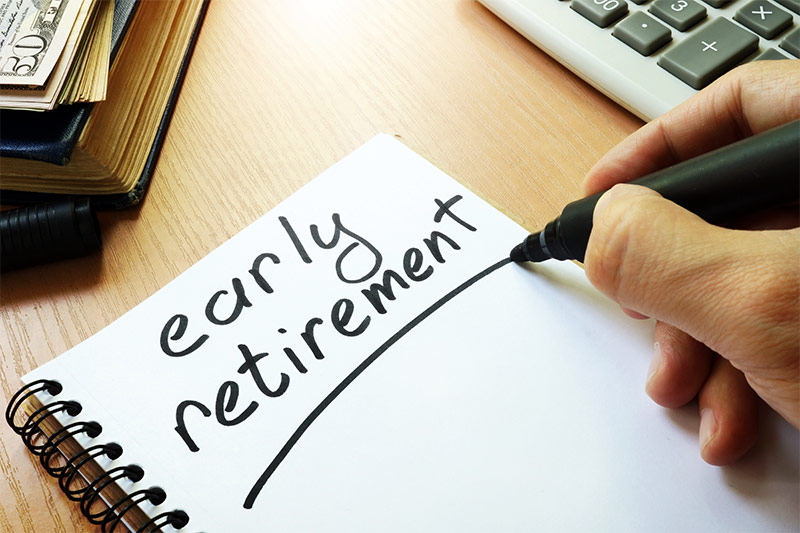Dreaming of retiring from your 9-5 job well before you hit the traditional retirement age of 65? Retiring in your 50s, 40s, or even earlier might sound like a pipe dream, but it could become your reality. Here are four steps to take if you want to retire early.
1. Cut back on your expenses and increase your income
A critical step to take if you want to retire early is to cut back on your expenses and save, save, save! Take a look at your spending habits, both small and large, and figure out where you can cut back. For some, this might mean significantly cutting back on a few large expenses, such as monthly rent. For others, it might mean cutting back on many smaller expenses, such as shopping and dining out.
If you cut back on your expenses and still don’t have much in the way of savings, look to increase your income. Retiring early is a numbers game – you have to save enough to live off of for many, many years in retirement, so this money has to come from either saving a large portion of your current income or increasing your income.
2. Pay off debt
If you want to retire early, pay down your debt now so you don’t have any left by the time you want to retire. In addition to deciding not to take on further debt, look at all types of debt you currently have and come up with a plan to pay it off well before you retire.
For those who have large credit card debt, consider seeking the help of a debt relief company. A reputable company can show you the various debt relief options and work with you to develop a plan to pay off credit card debt.
3. Estimate your total retirement savings needs
You should have a good estimate of how much you anticipate spending every year during your retirement in order to determine how much you need to save before retiring.
While you’ll never be able to perfectly predict your retirement expenses, start by writing down all of your current expenses and estimating what those will be in the future. Think about the life you want to live in retirement – will you move to a low cost of living country, or do you plan to retire in Manhattan? Will you be supporting others or just yourself? All of these factors will go into how much savings you’ll need. Don’t forget about your healthcare costs and taxes, as these often catch retirees off-guard as to how expensive they truly are.
After you’ve set forth your monthly estimated expenses, you can determine the yearly amount you’ll need in retirement.
4. Invest wisely
In order for your hard-earned money to last during an indefinite period of retirement, you need to invest that money in places that will grow. Many financial planners suggest low-cost index funds as well as your company’s 401(k) as good places to start.
If you are serious about early retirement, reach out to a financial planner who can assess your specific financial situation and guide you as to where to put your money to set you up for a successful early retirement.


